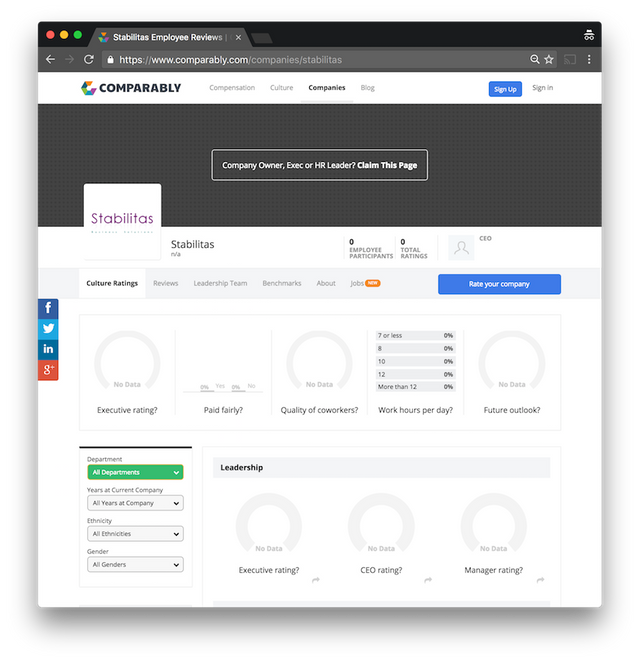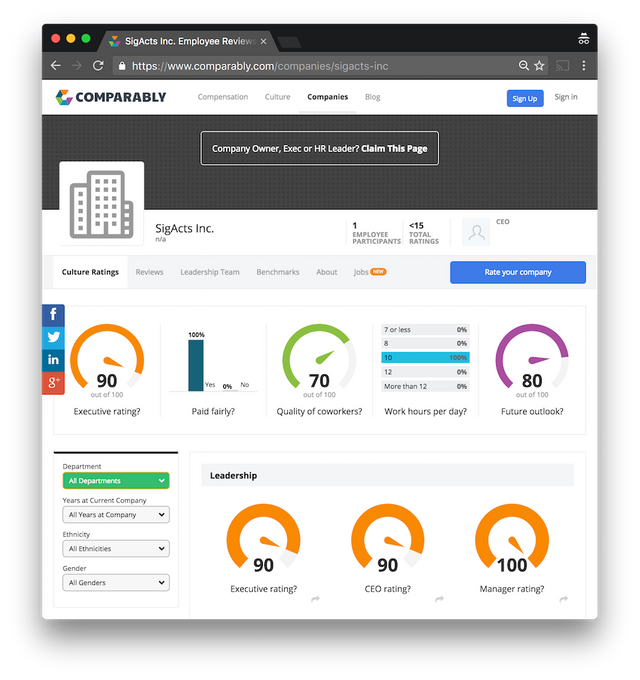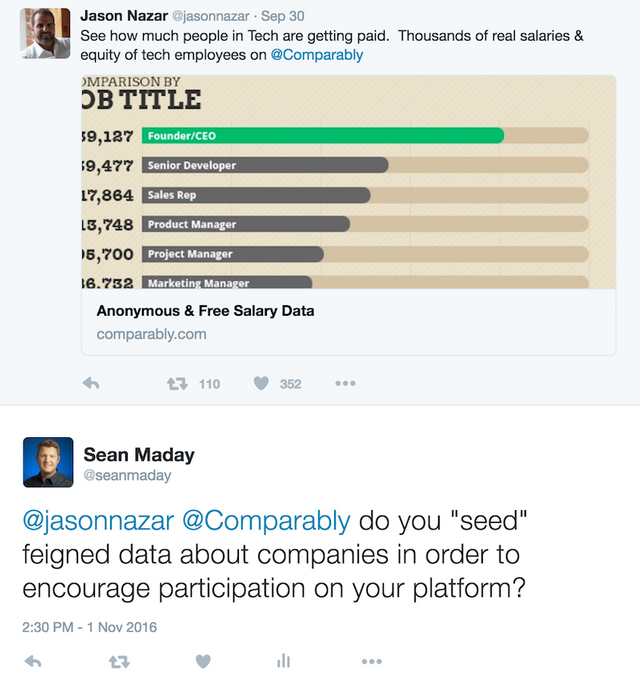
When does growth hacking go too far?
All startups are competing for customers. In the age of pervasive social media and constant connectedness, one outlandish stunt or creative ploy can bring an avalanche of attention to a burgeoning enterprise. In a perfect scenario, this attention can be parlayed into immense volume at the top of the sales funnel.
There is no doubt that finding new prospects can be a slog for young businesses, but where should an emerging company draw the ethical line? Is all fair in love, war, and customer acquisition?
A few months back I came across a company called Comparably. I had never heard of this outfit until early October when they sent a few emails to members of the Stabilitas team indicating that one of our coworkers had left a rating/review on their site.

Comparably appears to be gunning for Glassdoor in the market of anonymous reviews about companies and their management.
At the time we received their “Employee Ratings Update” email, it seemed to be a legitimate notification about someone leaving a critique of Stabilitas on the Comparably website.
When we checked out the link Comparably had sent, we observed, that among other stats, we were batting 100% on meeting effectiveness and 70% on the quality of coworkers. Upon further consideration and conversation though we came to feel that these metrics just didn't pass the muster of common sense.
Stabilitas is a fairly young company that hasn’t had any employee turnover or teammate churn.
As the resident data guy at Stabilitas, I went back a week later to dig deeper into these "stats". On this visit, I observed that there was no rating or review at all listed for Stabilitas.

Odd! Maybe one of our coworkers had left a review and then withdrawn it out of guilt or remorse.
This theory didn’t hold water either. We have a very forthright and open culture at Stabilitas. Candid and brutally honest bidirectional feedback are a hallmark of our communication style. We hire slowly and make sure that all team members feel entitled to speak truth to power.
Another datapoint added clarity to this situation.
A few years back I started a small company called SigActs to be the parent entity for my geospatial development tinkering. In April of this year I quietly sold SigActs and its intellectual property to Stabilitas.
SigActs never had any employees. Yet when I searched for SigActs on Comparably, I found an anonymous review. Where could this data have come from? Had a phantom spamming reviewer struck the SigActs profile on Comparably?
A more likely hypothesis seems to be that the data Comparably shows is completely fabricated, and is staged to artificially stimulate engagement.

I don’t know for certain if Comparably is a source of baseless reviews of if they use false claims to get visitors to engage with their platform. Regardless, I don’t trust their data.
This situation got me reflecting on the ethics of customer acquisition.
I personally do not believe that growth hacking should involve activities as ethically dubious as making up fake statistics about a company’s compensation and culture. It also strikes me that a firm using the term “transparent” in their tagline might want to be a bit more legitimate in their marketing and prospecting.

What do you think? Where do you draw the ethical line?
Note: After Comparably started targeting me with their advertising on Twitter, I reached out to them for comment on my theory. I did not hear back. Perhaps they are too busy cooking up shady growth schemes and simply don’t have time to triage direct messages on Twitter.
